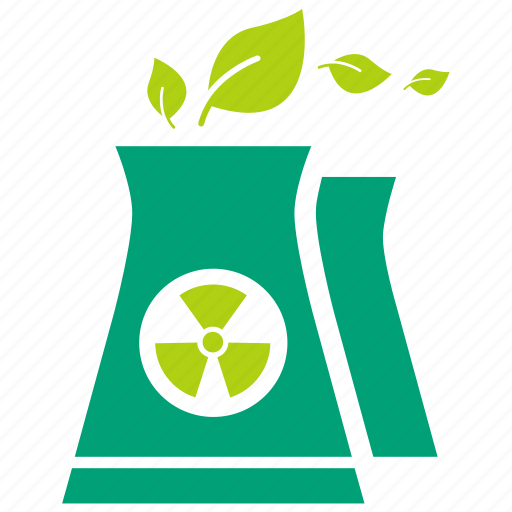Source: https://www.world-nuclear-news.org/Articles/World-needs-nuclear-for-net-zero-Kerry
Nuclear will be essential for the world to accelerate its transition away from fossil fuels, US Special Presidential Envoy for Climate John Kerry said at a New York summit this week. He also praised the recently launched Net Zero Nuclear Initiative - which has now welcomed GE Hitachi Nuclear Energy (GEH) as its first corporate partner.
Kerry was addressing the first day of Nuclear Energy Policy Summit 2023: Accelerating Net Zero Nuclear, an inaugural event organised by the Atlantic Council Global Energy Center in partnership with the Emirates Nuclear Energy Corporation on the sidelines of New York Climate Week and the United Nations General Assembly.
Extreme weather events are only going to increase as the world falls behind on its climate targets, Kerry said, as he called for science-based decision-making. “The reality is that this year it’s going to be worse than last year, and next year is going to be worse than this year, no matter what we do - for the simple reason that we’re way behind,” he said. “We’re currently heading towards something like 2.4 degrees, 2.5 degrees of warming on the planet and everything that you see happening today is happening at 1.1 degrees Celsius of warming,” he said.
“We have to recognise a reality here. We have to transition away from unabated burning of fossil fuel,” Kerry said.
“Most scientists will tell you … we can’t get to net zero 2050 unless we have a pot, a mixture, of energy approaches in the new energy economy. And one of those elements which is essential in all the modelling I’ve seen, is nuclear.”
The magnitude of the challenge will require commitment, he added. “Even if you had a quintupling of renewable energy, you will not alter the current course of 2.4 degrees - it’s that big a challenge right now.” This needs commitment firstly “not to keep making the problem worse” by supporting the use of fossil fuels which remain unabated, and secondly to accelerate all zero emissions or extremely low emissions approaches to energy, transportation and ultimately heavy industry: “We don’t have the luxury of unilaterally disarming ourselves … with respect to any decarbonisation technology when we’re facing the urgency of this crisis - it’s all of the above we need on the table.”
The USA is now committed, “based on experience and based on reality”, to trying to accelerate the deployment of nuclear energy, he said. “It’s what we believe we absolutely need in order to win this battle and we believe we still can win this battle”.
Net Zero Nuclear
The COP28 climate conference - which takes place in Dubai from 30 November until 12 December - is an opportunity to try to galvanise more action, and Kerry said he was pleased to see the launch of the “pioneering” Net Zero Nuclear platform. This initiative was launched in early September by World Nuclear Association and the Emirates Nuclear Energy Corporation (ENEC), with support from the International Atomic Energy Agency’s Atoms4NetZero and the UK government, and aims to ensure that nuclear energy’s potential is fully realised in facilitating the decarbonisation of global energy systems by promoting the value of nuclear energy and removing barriers to its growth especially in the run-up to COP28.
Speaking after Kerry’s address to Nuclear Energy Policy Summit 2023, World Nuclear Association Director General Sama Bilbao y Léon announced that GEH has become Net Zero Nuclear’s first corporate partner.
“We do want to make sure that this initiative brings the entire global nuclear industry together,” Bilbao y Léon said. GE’s decision to join the initiative clearly shows that the company - which works in a number of clean energy technologies - “sees nuclear as a key component of any serious energy transition towards clean energy processes,” she added.
We’ve known this for a while. Irrational fear of nuclear power is one of the main reasons we haven’t been able to effectively fight climate change.
There might be irrational fear. But there is justified fear too.
My understanding is that they are safer today because of better design and oversight, but that things can still go very wrong without those.
I’ve read articles and opinion pieces stating that new nuclear plants won’t be ready in time to deal with the immediate crisis, and that we will miss our chance to make a timely difference if we focus on the wrong/untimely solution.
Maybe it depends on the region and what alternatives are available. I would like to be wrong, but for ever convincing argument in favour of nuclear, I see an opposite.
Nope, wrong. Modern reactor designs literally cannot melt down, and reactors have never been capable of exploding like a nuke. Literally nothing can go wrong like with old designs from the 60’s and earlier. You’d pretty much have to add a powerful bomb to the design for them to rupture in any capacity.
The biggest reason they take for ever to make is all the red tape. In the US, there is a REQUIRED 7 YEAR review. Plans have to be complete on a specific power plant before they can even be reviewed. There is an insane amount of red tape slowing nuclear energy down.
Your last point is what I’m talking about. It doesn’t matter if the problem is with nuclear or if it’s with regulation. If we can’t build it before we get wiped out then the rest is hypothetical.
Here’s a good article explaining why a nuclear approach would be doomed to fail in Europe too: https://www.cell.com/joule/fulltext/S2542-4351(23)00281-7
@FarraigePlaisteach @Emil @flossdaily @MotoAsh That is not an explanation, it is an assortment of claims without any attempt to prove them.
The DIW is a pseudo-scientific institution giving out PhDs for anti-nuclear propaganda.
If there are only non-technical, non-engineering obstacles for a solution, then it is our task to remove them, not throw up our hands in fatalism.
Ooohh, green energy. Ok, that title makes sense.
The U.S. basically has no plan for storage of nuclear waste. All but one of the “swimming pools” have been filled to the brim. Some sites are starting to move the waste into concrete vaults. Some have been seen leaking.
The first step is to figure out what happens to the waste.
We do and have had plans for awhile but again, fears have made it impossible. The actual waste from modern reactors are insanely small and we were safely storing them in above ground barrels until the public freaked out. There’s nowhere it can go out of the constant and persistent ignorance mixed with fear.





